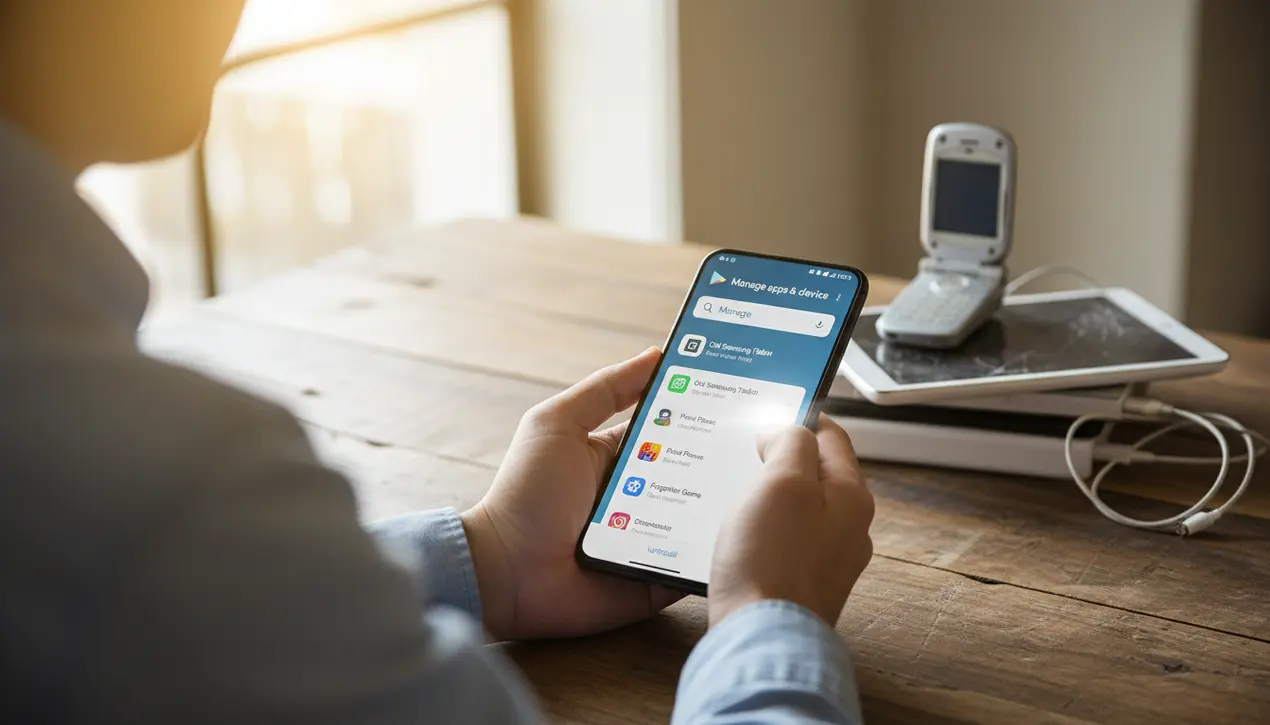
Otherauto & mobilityElectric Vehicles
Google Play Store Adds Remote App Uninstall for Android Devices
AN
Andrew Blake
2 hours ago7 min read
In a move that feels long overdue yet perfectly timed for our increasingly multi-device digital lives, Google has quietly rolled out a feature for the Android ecosystem that solves a minor but persistent annoyance: the ability to remotely uninstall apps from other connected devices directly from the Google Play Store. This isn't just a simple quality-of-life update; it's a small but telling signpost on the road to a more seamlessly integrated and user-centric technology environment.For years, the process was a clunky anachronism. You'd pick up your old phone gathering dust in a drawer, or your tablet with a dying battery, only to be reminded of some forgotten game or a redundant utility app you'd downloaded on a whim.Removing it meant hunting down the specific device, powering it on, navigating through layers of settings menus—a five-minute chore for a two-second decision. This friction, this tiny digital inertia, is precisely what Google has now eliminated.The mechanics are elegantly simple. Within the Play Store app, under the 'Manage apps & device' section, a new 'Manage' tab reveals a list of all your devices associated with your Google account.Selecting one displays the library of apps installed on that specific gadget, allowing you to tick them off and uninstall them with a tap, as if you were holding the device in your hand. It’s a clear acknowledgment that our digital identities are no longer tethered to a single piece of hardware but are distributed across a personal constellation of phones, tablets, and even Chromebooks.This development didn't occur in a vacuum. It follows a broader industry trend towards centralized device management, a philosophy championed by Apple with its relatively cohesive ecosystem.However, Google's approach is arguably more ambitious and complex, given the fragmented nature of the Android landscape with its myriad manufacturers and custom interfaces. Implementing a unified feature that works across a Samsung Galaxy, a Google Pixel, and a Xiaomi device is a significant technical and collaborative achievement.The implications ripple outwards. From a security standpoint, this is a powerful tool.If a device is lost or stolen, you can now remotely strip it of sensitive applications like banking or password managers, adding an extra layer of security beyond a simple remote lock or wipe. For parents managing their children's tablets, it offers a new dimension of control, allowing them to curate content and remove distracting apps without having to physically confiscate the device.For the enterprise sector, IT administrators overseeing fleets of corporate devices will find this an invaluable addition to their mobile device management (MDM) arsenals, enabling more efficient software lifecycle management. Yet, it also invites questions about the nature of our digital autonomy and the reach of our accounts.The feature operates on a foundation of trust and the pervasive connectivity of our Google accounts. It reinforces the idea that Google is the central orchestrator of our Android experience, a benign shepherd for our digital flock.While the convenience is undeniable, it subtly underscores the extent of the infrastructure we rely upon. There's a faint echo of tech support nightmares avoided—no more trying to talk a less-tech-savvy relative through uninstalling a dubious app over the phone.It democratizes a small piece of technical control. Stepping back, this update is less about the feature itself and more about what it represents: the gradual, sometimes imperceptible, smoothing out of the rough edges in our daily interactions with technology.It’s the kind of incremental innovation that doesn't make flashy headlines but collectively makes our digital existence more fluid and less frustrating. It shows a maturing platform that is focusing not just on raw power or new capabilities, but on refining the experience of living within its walls. In the grand Wikipedia dive of tech evolution, this is a footnote, but it's a footnote that makes the entire chapter easier to read.
#Google Play Store
#Android
#app management
#remote uninstall
#software update
#mobile technology
#featured
Stay Informed. Act Smarter.
Get weekly highlights, major headlines, and expert insights — then put your knowledge to work in our live prediction markets.
Comments
Loading comments...
© 2025 Outpoll Service LTD. All rights reserved.